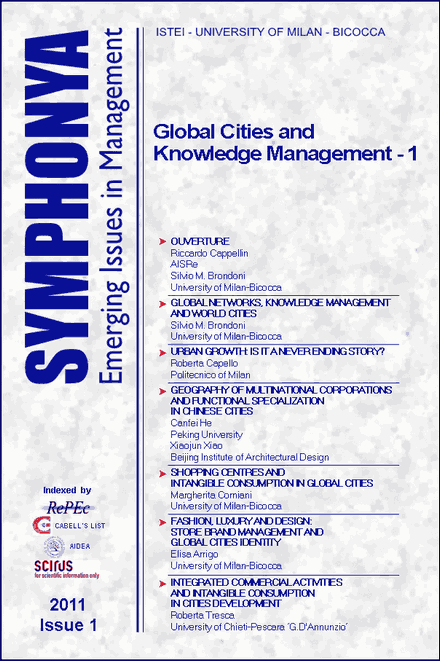Shopping Centres and Intangible Consumption in Global Cities
DOI:
https://doi.org/10.4468/2011.1.05cornianiKeywords:
Shopping Centres, Global Competition, E-Commerce, Intangible Consumption, Global CitiesAbstract
In global markets, shopping centres are becoming important agents, defining the kind and quality of intangible features of supplies, not only establishing the assortments, but also affecting the consumption behaviour atmosphere that they
determine in all its aspects. In this way, shopping malls are responsible for the quality of the intangible consumption process which has a profound impact on people and on the community that people live in. That is why shopping centres, both physical and virtual (i.e. e-commerce sites and other kinds of virtual marketplaces), are significant in big towns, where commercial density is high. By defining the intangible aspects of consumption, shopping centres determine the
development of a particular geographical area (normally surrounding a big city) because they are able to concentrate demand, and they play an active role in establishing the choice alternatives, which means forging the consumption habits and expectations of populations and cities.
Downloads
Published
How to Cite
Issue
Section
License
The authors retain all rights to the original work without any restrictions.
License for Published Contents

You are free to copy, distribute and transmit the work, and to adapt the work. You must attribute the work in the manner specified by the author or licensor (but not in any way that suggests that they endorse you or your use of the work).
License for Metadata

Symphonya published articles metadata are dedicated to the public domain by waiving all publisher's rights to the work worldwide under copyright law, including all related and neighboring rights, to the extent allowed by law.
You can copy, modify, distribute and perform the work, even for commercial purposes, all without asking permission.



